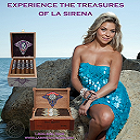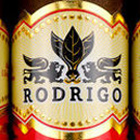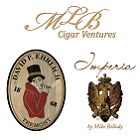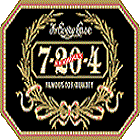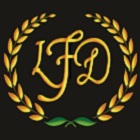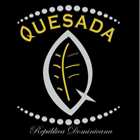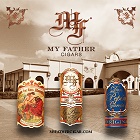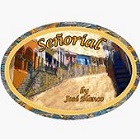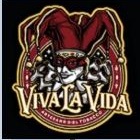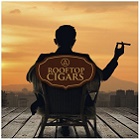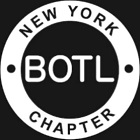Glossary
Aging – Cigars that are completed are placed in rooms, most likely cedar lined, under humidified conditions. The cigars is place to rest, during which time the tobacco is given a chance to blend. Cigars can continue to age in your own cigar humidors. If properly maintained, cigars can continue to age up to ten years and more.
Air Curing – Freshly picked tobacco leaves are hung in air vented covered barns and allowed to dry in the breeze. This allows the tobacco to concentrate, while getting rid of any unwanted chemicals.
Amarillo – Yellowish wrapper leaf grown in shade.
Aroma – The fragrance of a cigar when lit….oh what a fragrance.
Artificial Head – This is a small piece of tobacco leaf cut separate from the main wrapper, placed in the slit of the wrapper to finish the cap for the head of the cigar. This allows the cap to appear to be part of the same leaf.
Bales – The fermentation stage is completed, now the tobacco leaves are packed up into a bundle and place in burlap. This serves as a way to safely transport the leaves as well as continuing to allow the leaves to age.
Band – Usually a arty and colorful strip of paper which identifies the line and maker of the cigar. Cigar bands are often printed with the name of the brand, country of origin, and/or indication that the cigar is hand-rolled.
Barrel – The main body of the cigar.
Belicoso – A cigar with a small rounded head that flairs out to a wider shape and can reach a gauge of up to 52. Belicoso is often used to describe Coronas or Corona Gordas with a tapered head.
Binder – A leaf which is coarse and tough in nature that is used to hold the filler in place. This is then covered by a the more attractive wrapper tobacco. It is one of the three main components in a cigar.
Blend – A mix of tobacco in a cigar. This determines the character and balance of the cigar. Traditionally, up to five types of fillers leaves can be used.
Bloom – As a cigar ages, sometimes the oils produced during the fermentation process creates a fine white powder. This can be wiped off and does not affect the cigar in the least. This is not mold, which can be identified by it’s bluish green color.
Bouquet – This is the fragrance of the wrapper and open foot of the cigar before it has been lit. A properly stored cigar should retain it’s bouquet and a badly store cigar can lose its bouquet. Also term used in wine tatesing.
Box Pressed – The slightly square look taken on by cigars packed tightly in a box.
Boxes – The container used to package cigars. Usually holding 25 to 50 cigars, these boxes come in many shapes and sizes. Cigars can be sold in natural cedar boxes, tins, basswood, or even cardboard boxes covered in decorative paper.
Bunch – Up to four different types of filler tobacco blended to create the body of the cigar. The bunch is held together by the binder.
Bundle – Usually 25 or 50 cigars bound or wrapped in plastic.
Cabinet Box – An all Spanish Cedar plain cigar. These are preferable when buying cigars for aging.
Cameroon Wrapper – A dark red to dark brown wrapper grown in Cameroon. This is a highly sought out wrapper. Due to high demand, Cameroon wrapper is now being grown throughout the world.
Candela Wrapper – Sometimes referred to as Double Claro, this light green wrapper gets it color from heat curing before the fermentation process begins. Not widely seen these days.
Cap – Also referred to as the crown or flag, a circular piece of wrapper leaf placed at the head of the cigar.
Capa – Cuban term for wrapper. Also called a binder.
Case – When workers moisten the aged tobacco to make it easier for the hand rollers to handle.
Cedar – The term “cedar” in cigar making is deceiving. The Spanish Cedar used in aging rooms and cigar humidors is actually from Central and South America from seven or so species of trees in the Mahogany family. The Spanish Cedar imparts a delicate woody flavor to your cigars and holds humidity nicely.
It is not the cedar we use in closets.
Chavetta – A crescent shaped knife used by cigar rollers to trim and cut the leaves.
Cheroot – A small cigar, 6 inches or less in length with a cigar ring size of 30 or less. Average length would be in the neighborhood of 4 inches. ( also referred as cigarillo)
Churchill – A cigar averaging 6 ¾” to 7 ¾” inches in length and a 45 to 48 ring size.
Cigar Bar – A lounge or establishment that caters to cigar smoker. Fine cigars are available for purchase and smoking, along with fine adult beverages (in some establishments) to enhance the experience. Comforts such as posh leather furniture and subdued lighting are in many of these establishments.
Claro – Also referred to as Natural, this wrapper is pale green to light brown ( like milky chocolate). Claro means “clear” or “lite” in Spanish.
Consistency – The ability of a cigar brand or line to provide the same high level of taste.
Colorado – A medium-brown to brownish-red shade of wrapper tobacco. Colorado cigars are usually aromatic and are associated with well-matured cigars.
Colorado Claro – A shade darker brown than the Colorado, with a yellowish-orange tint.
Colorado Maduro – Darker than the Colorado Claro, this medium to almost dark brown wrapper produces a more full flavor.
Connecticut Broadleaf – Originating in the Connecticut River Valley of the United States, this leaf is grown in full sunlight. The wrapper is used for maduro cigars. This produces a dense dark brown color.
Connecticut Shade – Known for it’s light brown color and smooth flawless appearance, this mild wrapper is considered by many to be some of the finest cigar wrapper leaf available. Originating in the Connecticut River Valley, U.S., it is grown under large cheesecloth tents.
Corona – The top two leaves of a tobacco plant are referred to as the Corona. Commonly, it is the classic cigar size, typically being 5 1/2 to 6 ¼ long with a 42 to 45 ring size. .
Curing – The process of drying newly harvested tobaccos.
Culebra – Made from three braided cigars. In Spanish it means “snake.”
Curly Head – The twisted finish on the head of a cigar. It is now being done by some premium cigar manufacturers also. This method has is also called to as “Pigtail” or “Fancy Tail”.
Cutter – A device used to clip or puncture the cap of a cigar to prepare it for smoking.
Debudding – The removal of flowers which sprout from the top of tobacco plants. This allows the plant to grow higher quality and bigger leaves.
Double Binder – Two consecutive binder leaves wrapped over the filler to provide extra firmness and stability.
Double Claro – A extra light cigar wrapper.
Double Corona – A cigar size, usually measuring between 6 3/4″ – 7 3/4″ long with a cigar ring size between 48 – 55.
Draw – The flow of smoke from a cigar.
Dry Cigars – Also referred to as “Dutch Cigars” which do not require humidification. Most are machine made.
E.M.S. – a color designation for wrapper leaves that are somewhat lighter in color than Maduro, especially selected for taste and bouquet. Also referred to as Naturals.
Escaparates – Cooling cabinets in which cigars are kept at the factory for a few weeks after they have been rolled.
Fabrica – Factory where cigars are rolled.
Fancy Tail – Also referred to as “Curly Head” and “Pigtail”.
Fermentation – Placed in large piles, tobacco leaves are moistened and allowed to use their own self-generated heat to remove many of the chemicals and impurities. Temperatures may reach 140 degrees before the bulk is broken down. Also referred to as bulking, curing, mulling or sweating.
Figurado – An unusually shaped cigar that does not have straight sides.Such as Belicosos, Torpedos, Pyramids, Perfectos and Culebras.
Filler– The individual tobacco used in the body of the cigar. A fine cigar usually contains between two to five different types of filler. Handmade cigars have long fillers where machine made cigars usually contain smaller-cut leaf.
Finish – Term which refers to the taste that lingers on your palate after a puff. Mild cigars do not have much finish, but stronger, more full-bodied cigars have distinctive flavors that linger.
Flag – Also referred to as cap or crown. Refer to “cap”.
Foot – The end of the cigar you light.
Gran Corona – A huge cigar. Averages 9 1/4″ long with a 47 cigar ring size.
Guayavera – Traditional four pocket shirt worn by cigar makers.
Guillotine – A single or double blade cigar cutter with the blades mounted in a sliding mechanism and a round hold in which to secure the cap for cutting.
Gum – A vegetable based adhesive used secure the wrapper leaf.
Habanos S.A. – The company which distributes Cuban cigars worldwide.
Hand – A group of similar tobacco leaves tied on the bottom by their stems.
Handmade – A cigar which has entirely been bunched and rolled by hand .
Hand-rolled – In most cases the wrapper on the outside was put on by hand, but the rest may done by machines
Havana or Habano – A made from Cuban tobacco and made in Cuba.
Head .The closed end of the cigar opposite from the end one lights.
Hot – A cigar which is “hot”, has less filler than needed. Being a fast, awkward burn with bitter taste. This cigar was not rolled correctly.
Humidor – A box, container, or room designed to maintain a 65 to 75 percent level of humidity and temperature of 65 degrees to 75 degrees. 70 degrees and 70 percent is considered ideal. Most made from Spanish cedar.
Hygrometer – A device used to measure humidity.
Lance– Cutter that pierces a hole in the cigar.
Lector – A person who reads to the cigar rollers while they were working. Was meant to educate and entertain the roller. Radios and CD player have replaced them.
Ligero – These are the leaves from the top section of the tobacco plant. Exposure to the sun creates a stronger, robust flavor, while producing an oily texture.
Long Filler – The length of the leaf runs the entire length of the cigar. Used for better cigars.
Lonsdale – A cigar size that varies from 6 1/4″ – 7 1/4″ in length and a 40-45 cigar ring gauge. But there are many variations.
Machine-made – Cigars that aremachine made and are made from short filler and tobacco scraps.
Maduro – A cigar very dark brown in color. Almost like black coffee.
Marblehead – A cigar with a rounded head.
Mold – A greenish blue fungus which appears in cigars if not properly stored. If not caught in time it can ruin all of your cigars.
Naked – A cigar not covered by a tube or cellophane.
Nicotine – It has a scent like tobacco. Tobacco has a very small amount of nicotine. The cigar leaf only contains about 3 percent nicotine.
Oil – An oil that secretes from a well humidified cigar.
Oscuro – A black shade wrapper. Very strong.
Panatela – A long, thin shaped cigar.
Parejo – A straight-sided cigar with the same ring gauge from tip to tip. In Spanish it means even.
Perfecto – A distinctive cigar with a closed cone shape head and foot, usually with a bulge in the middle.
Pinch Test –a way to feel a cigar. Lightly pinch the cigar between you thumb and forefinger. If it feels firm is good, to hard or to spongy is no good.
Piercer– A cutter used to pierce a small hole.
Pigtail – The “curly head” of a cigar.
Plug – A blockage in a cigar which causes too tight a draw. Sometimes massaging the cigar relieves the problem.
Plume – The appearance of a whitish dust on the on cigars that has been aging for a period of time. It is not mold and has no affect on the cigar.
Premium Cigar – A cigar that is handmade and of h high quality. Usually a higher end cigar.
Priming – When the leaves are picketed from the tobacco plant.
Punch Cutter – A cutter that makes a hole approximate ¼ inch in diameter on the head of the cigar .
Puro – A cigar whose tobacco is entirely from the same country. The Spanish word for “pure”.
Pyramid – A cigar that is narrow ring gauge at the head and wide at the foot.
Ring Gauge – Unit that measures the diameter of a cigar.
Robusto – A short and but substantial cigar which averages 5″ inches long and a 50 ring gauge.
Rollers – The worker who rolls the cigar.
Scrap Filler – Tobacco cuttings and scrapping used to make inexpensive cigars.
Seco – The Spanish word for dry, is a type of filler tobacco. That often contributes aroma and is usually medium-bodied
Shaded – The sorting of cigars by color before being packaged.
Shade Grown – Wrapper leaves grown under cheesecloth tents. Also called tapado.
Sizes – the way cigars are classified, by length and ring size.
Short Filler– Used mainly in machine-made cigars, they are chopped scraps of leaf. Short filler has quicker burn and is hotter than long filler.
Shoulder – Where the cigar cap meets the body.
Spanish Cedar– type of wood used to make most humidors and cigar boxes.
Spill-A strip of cedar wood used to light a cigar.
Tapado – The cheesecloth tent under which shade grown wrapper is grown. In Spanish it means covered.
Tobacconist – A retailer offering a wide selection of cigar brands and sizes and very knowledgeable of cigars and cigar-related products.
Torcedor – Master cigar roller.
Torcedores– A person that rolls cigars.
Toro – A longer version of the Robusto. It measures 5 1/2″ – 6 1/2″ long and a cigar ring size of 47 – 55
Torpedo – A cigar with a wide foot that gradually tapers to a closed pointed head.
Totalamente a Mano– Spanish for totally made by hand.
Tubos – Cigars that are packed in individual tubes.
Tuck – Also known as the foot of the cigar.
Tunneling– When a cigar does not burn evenly.
V-Cut – A cutter which make a cut in the form of a v.
Vein – Lines seen in a cigar leaf.
Vintage– Used to describe the year the tobacco was harvested not when the cigar was made.
Vuelta Abajo – The most famous tobacco growing region in Cuba. Some say that it produces the best tobacco in the entire world.
Wedge Cut– same as a v-cut.
Wrapper – leaves used to retain the filler. This completes the cigar and gives it a finish look.
8-9-8 Packaging – Cigars packed in a box three layers deep, with eight on the top, nine in the middle and eight on the bottom.












